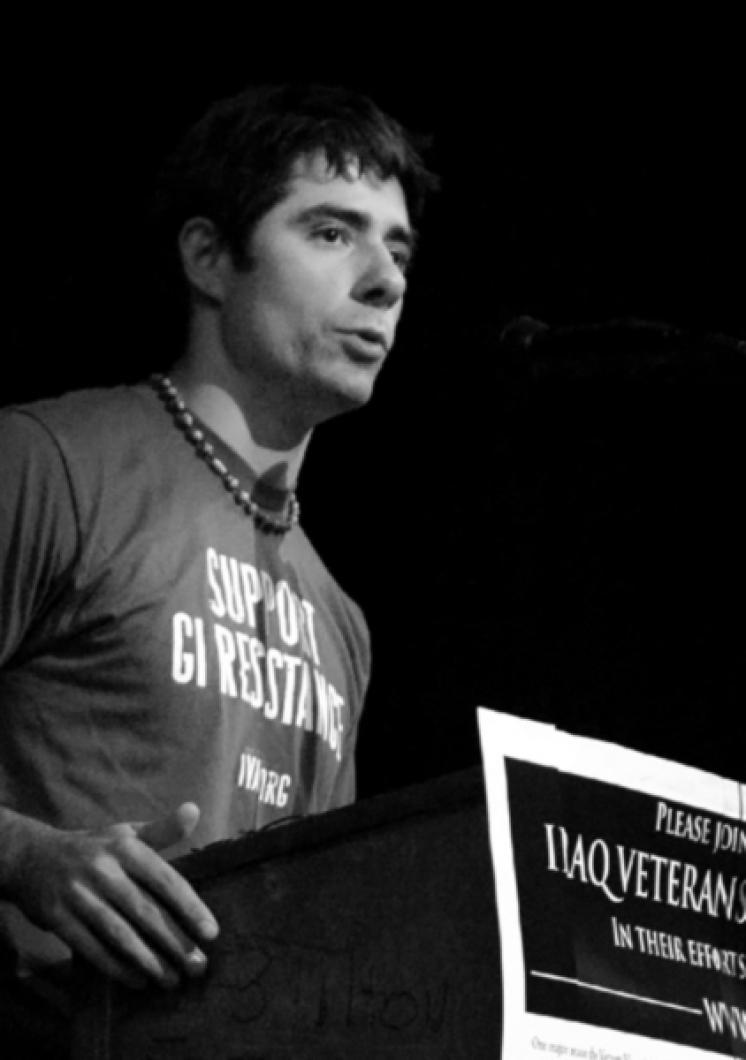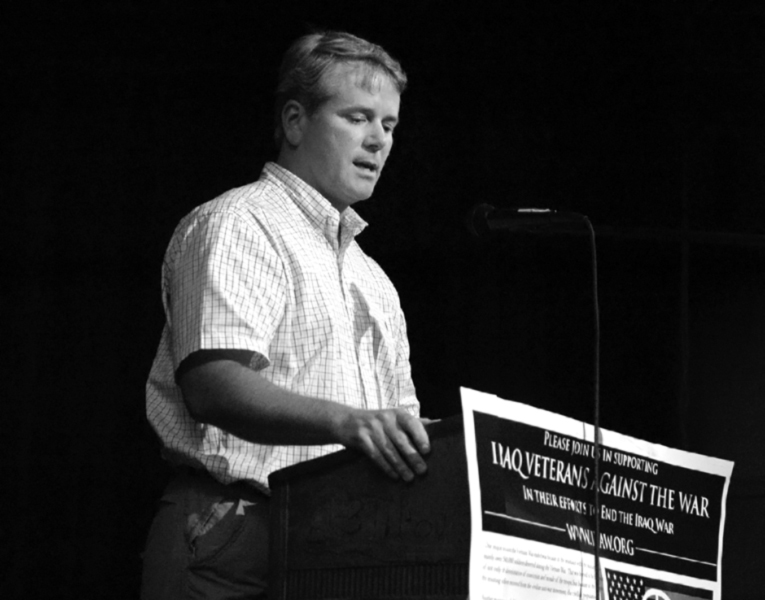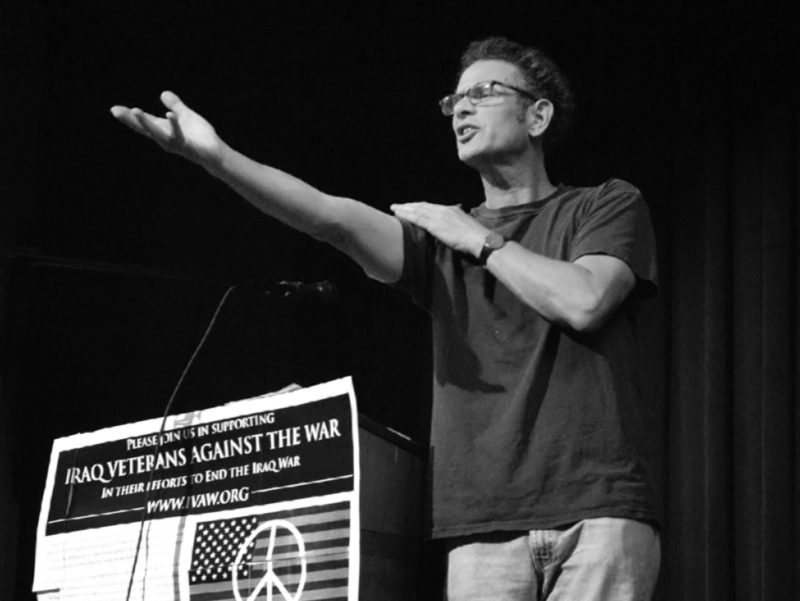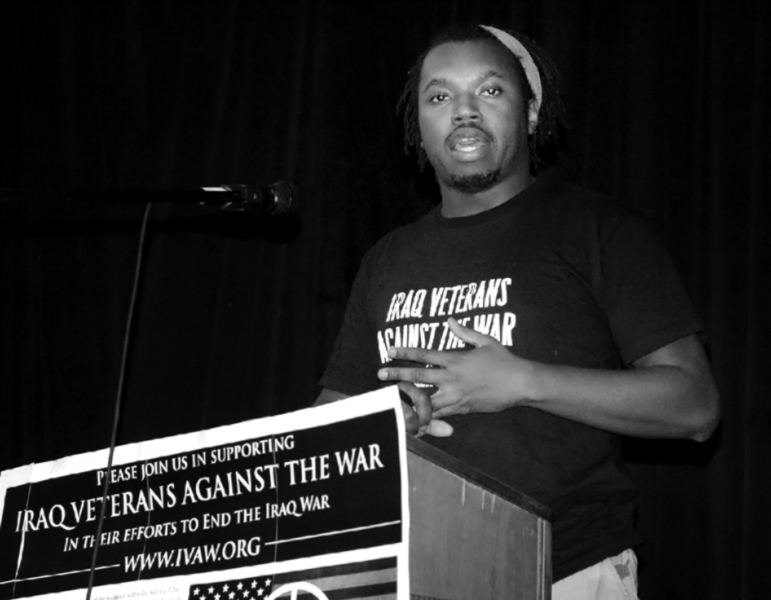The cost of war can’t be measured solely in dollars and cents, nor only in lives lost. These numbers don’t tell the whole story because they don’t reflect another cost, the emotional scars war leaves behind. And often these scars are never truly revealed, and the stories behind them are left untold. This was not the case last Wednesday, when an attentive audience at the Katharine Cornell Theatre listened as a veteran of the Iraq war offer a chilling, impromptu account of his experiences.
More than 50 people gathered in the theatre that night to listen to members of Iraq Veterans Against the War, a national organization of veterans and active-duty service members who have served since Sept. 11, 2001, share their organization’s strategies for ending the war. Since it was founded in 2004, IVAW has grown from nine to more than 1,200 members in 48 chapters across the country. Three of those members spoke in succession about the organization’s three-pronged strategy to stop the fighting, which includes: visiting military bases and their surrounding communities to inform servicemen and women of their rights; protecting and supporting members of the military who resist the war; and telling potential recruits about the realities of serving in the military. Those present did learn about the organization, its members and its methods, but they also heard something unexpected.
As the last veteran on the program, Liam Madden, who served as a communications electronics specialist in the U.S. Marine Corps from January of 2003 to January of 2007, concluded his remarks about the organization, he turned the microphone over to Master Sgt. Patrick Kelly of Mendham, N.J. Master Sergeant Kelly, who was visiting the Island with his family, explained that even though he wasn’t a member of the Iraq Veterans Against the War or scheduled to speak, he saw the poster advertising the event and knew he had to be there.
After spending 24 years in the U.S. Air Force, Master Sergeant Kelly retired last year. In January of 2004 he was visiting the place where his mother was laid to rest when he got a phone call from the U.S. government. Since he was a reservist, Master Sergeant Kelly figured he was being re-called. But when he answered the phone he learned he was being activated immediately and was to report for duty the next day. So he was forced to leave home with his wife nine months pregnant and go to Camp Wolverine in Kuwait City where he was put in charge of mortuary duty.
In a raw, emotional account, Master Sergeant Kelly explained how he spent 14 hours a day unzipping body bags and making sure the death certificates matched the dog tags of the deceased. Clearly angry, he told the audience he believed what the government told the American people about the war until he was there. “I saw these kids, 18 years old, eyes still open, mouth wide open, staring at me as they’re screaming . . . dead,” he said in a softened tone.
He confessed that even though he was truly disturbed by what he was doing, he didn’t say anything to anyone so as not to affect morale. “The night was my comforter, the darkness, so I could cover my distorted face as I cried and cried,” Master Sergeant Kelly said fighting back tears.
He explained that since he got back, he hasn’t been able to hold himself together. Even though he was on vacation with his family, he said he couldn’t feel good because of the painful memories he was carrying inside.
“Look at me. I don’t look any different,” he said stepping out from the podium motioning to his crisply ironed polo shirt, khaki shorts and simple strapped sandals. Then, pointing to his head of neatly combed silver hair, he explained the difference between himself and the other visitors walking along Main street, Vineyard Haven: “But the wounds are up here.
When he was finished, Master Sergeant Kelly thanked the crowd saying he’d never told anyone his story before. Mr. Madden rose from his chair and hugged him.
And Master Sergeant Kelly’s story seemed all too appropriate considering the night was dedicated to a group interested in exposing the truth about war.
“IVAW is a platform for soldiers to act against all the lies they’ve been told about what’s happening, an opportunity to affect real change,” said Specialist Carlos Harris who served in the 18th Airborne Corps from November 2001 to February 2006.
The group left the Island hoping to affect change this week at the Democratic National Convention. Quoting Frederick Douglas, Mr. Madden said, “Power concedes nothing without demand.”







Comments
Comment policy »